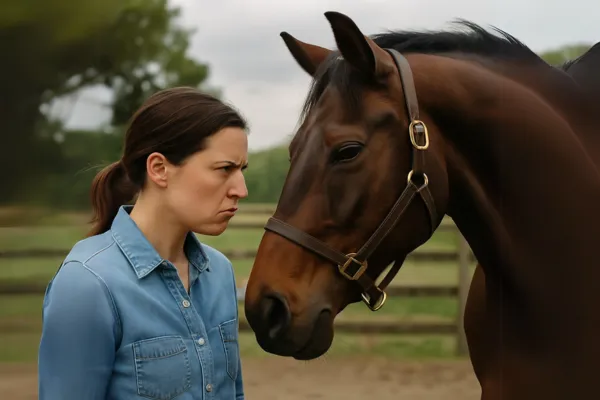Unlock the Power of Your Subconscious Mind
to Elevate Your Game
All One-on-One Sessions Are Done on Zoom!
Discover How Hypnosis Can Help You Build a Winning Mindset
PROGRAM SUCCESS INTO YOUR SUBCONSCIOUS MIND FOR YOUR CHOSEN SPORT TODAY
Discover the powerful tool that hypnosis can be to Improve Your Mindset To Win
Clinical Hypnotherapy Individual Sessions Done On Zoom. Working With Teams Can Be Done In Person. Please Contact Sue To Book.
BY Sue Williams
ABOUT SPORT HYPNOTHERAPY
Opening in 2020 to serve the many requests for help with issues at the subconscious level, Sport Hypnotherapy serves as a brief intervention for deep changes in clients lives and assists athletes, sporting teams and sportspersons. Unlike traditional therapy, our sessions are short and focussed squarely on communicating with the Unconscious Mind to make changes at a deeper level.
5
YEARS EXPERIENCE
100's
CLIENT HOURS
11
5 STAR REVIEWS
15 YEARS EXPERIENCE
1000+ CLIENT HOURS
18 5 STAR REVIEWS
The Power of Hypnosis for Lasting Change
Ever feel like you're stuck in the same patterns, even when you're trying to move forward?
The reason might not lie in your conscious mind - but deep within your subconscious. That’s where real and lasting change often begins, and hypnotherapy can be a powerful way to help you access it.
🌟Why Hypnotherapy?
Unlike traditional talk-based approaches, hypnotherapy gently bypasses the overthinking, analytical part of your mind and works directly with your subconscious. It’s like opening a direct line to your inner programming, allowing you to shift habits, patterns, and perceptions with greater ease.
💡Supporting Positive Change
From adjusting unwanted habits to building focus, motivation, or self-trust, hypnosis can help you explore new possibilities. Think of it as an ‘OS update’ for your mindset, clearing old clutter and making space for what serves you now.
🤝Your Trusted Guide
As a certified Clinical Hypnotherapist, I bring years of experience and a compassionate, intuitive approach. Sessions are tailored to your unique goals and delivered in a way that’s enjoyable, respectful, and empowering.
🔒Safe, Confidential, Empowering
Your well-being and trust are at the heart of every session. You’ll be supported in a private, judgment-free space designed to help you feel safe and in control throughout your journey.
🌱Ready to Begin?
You already hold the inner resources you need, hypnotherapy simply helps you access them. If you're ready to move forward with clarity and confidence, I’m here to support you.
💲Need flexible payment options? No worries!
Afterpay, Zip, credit card and direct debit installment plans are all available.
About Sue Williams.
Clinical Hypnotherapist
Five Years Clinical Hypnotherapy Experience
Athlete's Secret Weapon Approved Practitioner
Twelve Years Experience in Holistic Health Modalities
Practitioner Member of the Complementary Medicine Association
Doctor of Quantum Counselling
Bachelor of Metaphysical Sciences
Clinical Hypnotherapist
Diploma of Sports Psychology
Quantum Journeys Hypnosis Practitioner
Energy4Life & BioEnergetix Practitioner
TFT & EFT Practitioner
Certified Holistic Nutrition Consultant
Diploma of Nutrigenomics
Animal Energy Therapy Practitioner
Sport Hypnotherapy supports athletes across all disciplines - every sport, every individual, every team.
This tailored mindset approach helps athletes enhance focus, build resilience, and work toward peak performance in their chosen sport.

Our Services
We have a range of services for different client outcomes.

Clinical Hypnotherapy
Unlock Your Competitive Edge with Sports-Focused Hypnotherapy
Our sessions are expertly crafted to harness the power of hypnosis in supporting athletic performance. Designed with both efficiency and effectiveness in mind, they help athletes cultivate clarity, confidence, and resilience, often in just a few focused sessions.
🌟Tailored to Your Goals
Each session is personalised to align with the athlete’s specific needs, whether it’s enhancing concentration, managing pre-competition nerves, or building mental stamina. By focusing on mindset development, athletes are better equipped to handle high-pressure moments and perform at their best.
🎯Strategic Mental Conditioning
Our targeted approach addresses key mental performance areas such as focus, motivation, and emotional regulation. Sessions are structured to support measurable progress without overwhelm, ideal for both individuals and teams.
⚡Efficient & Impactful
In the fast-moving world of sport, time matters. That’s why our hypnotherapy process is designed for noticeable shifts in mindset, often within a short timeframe. Many athletes report feeling more composed, focused, and mentally prepared after just a few sessions.
🧠Sustainable Mindset Shifts
Rather than surface-level fixes, we work with subconscious patterns to support lasting change. Athletes gain tools and strategies to manage setbacks, stay mentally strong, and continue progressing toward their personal performance goals.

Specialty Packages
STEADY STRIDES EQUESTRIAN SPORTS MINDSET PROGRAM
Includes:
Custom Root Cause Hypnotherapy Session
Session Recording $97 Competition Mindset Coaching x 12 Sessions
Riders Mindset Audio App
2 X Energy Scan
5 X Infoceuticals
Bonuses:
Nutrition Package
Tai Chi
Qigong
Stretching & Balance Program
Riders Coordination & Flexibility Program
Horse Float Towing Confidence
4 x Meditations
Journal
Planner
eBooks: Equestrian Hypnosis, Sports Hypnosis, Case Studies
SPECIALTY SESSION PLANS
Packages of sessions for specific outcomes

Steady Strides Equestrian Sports Mindset Program
This is a comprehensive program to equip riders with the mindset to get back into or improve their sport of horse riding.
Our Mission
Dedicated towards helping you reach your potential
Our Promise
As a member of leading Australian and international hypnosis and psychotherapy associations, Sue is committed to providing professional, client-centered care. Each session is designed to support you in gaining clarity, building confidence, and navigating challenges with greater ease and resilience.

Our Guarantee
We’re honoured every time an athlete chooses to work with us to support their mindset and performance goals. Your satisfaction and comfort are our top priorities.
That’s why Sue offers a satisfaction guarantee on your first session, so you can explore the benefits of Sport Hypnotherapy with confidence. If you feel the approach isn’t right for you after your initial session, simply let us know.

The Athlete's Secret Weapon Approved Practitioner
Sue Williams has been given the honour of being only the second "The Athlete's Secret Weapon Approved Practitioner."
She now offers the proven mindset techniques trusted by World Champions and Olympic Gold Medalists to help athletes achieve their peak potential.
Our Blogs

What Are Unconscious Payoffs. And Why Do Animals (and Humans) Do "Unhelpful" Things to Protect Themselves?
What Are Unconscious Payoffs? And Why Do Animals (and Humans) Do "Unhelpful" Things to Protect Themselves?
Have you ever noticed how we sometimes do things that don’t quite make sense?
Maybe you’ve put off making a phone call because deep down you dreaded the conversation.
Or perhaps as a child you suddenly felt ill before a test or a stressful event — and got to stay home, safe from the thing you feared.
On the surface, these actions seem like avoidance or self-sabotage.
But underneath, something deeper is happening.
Our subconscious minds are protecting us from discomfort, fear, or emotional pain.
This is known as an unconscious payoff or secondary benefit.
In simple terms, it means:
"If I do this thing (even if it’s not ideal), I get to avoid that thing (which feels worse)."
And here’s where it gets even more interesting — our animals do the very same thing.
Animals Are Masters of Unconscious Protection
When an animal behaves in a way that confuses us — shutting down, refusing, avoiding, or even becoming aggressive — it’s easy to label it as “bad behaviour.”
But what if, like us, they are simply trying to protect themselves?
Let’s take a few common examples:
A horse who refuses jumps or resists being saddled may not be “naughty.”
They may be unconsciously trying to avoid discomfort, pain, or fear from past experiences.A dog who growls when someone reaches for their food may not be “aggressive.”
They may have learned that guarding resources keeps them safe and in control.A cat who hides when visitors arrive may not be “antisocial.”
They may be instinctively withdrawing to self-soothe and prevent overwhelm.
In all these cases, the behaviour is a solution, not a problem — at least in the animal’s world.
The Key to Change Is Understanding the Payoff
Just like us, animals hold onto patterns that work for them on some level.
Even when these patterns cause problems, they feel safer sticking with what they know.
Change happens not by forcing the behaviour to stop, but by uncovering the unconscious payoff and offering something better.
Here’s how that process looks:
Observe the behaviour carefully
What are they doing, and when does it happen?Consider the possible payoff
What is the behaviour allowing them to avoid or control?Validate the need
Respect that the behaviour has a purpose — they are not just being difficult.Create safer, healthier alternatives
Support them in meeting their need without the old behaviour.
For example, instead of forcing a fearful horse to comply, we might work slowly to rebuild confidence and positive associations with the saddle or arena.
For a resource-guarding dog, we might teach them that they can trust people near their food without losing it.
Seeing the Mirror: When Their Patterns Reflect Ours
Perhaps the most profound part of working with animals in this way is how it reflects back on us.
Where do we unconsciously avoid challenges?
Where do we hold onto protective patterns?
Where do we seek comfort instead of growth?
Recognising that animals — like us — are navigating their world through instinct, learning, and unconscious protection helps us become more compassionate, patient, and connected.
In the end, their journey of releasing old patterns can inspire us to do the same.
Behaviour isn’t always what it seems.
When we look beneath the surface, we find wisdom, survival, and a desire for safety in both human and animal responses.
And that’s where true healing and connection begin.
Frequently Asked Questions
What is Hypnosis?
It is the bypassing of the critical faculty of the mind and direct communication with the subconscious mind. It feels a lot like a deeply focussed day dream. Another name for it is Monoideism which is essentially having a singular focus.
What is Hypnosis Like?
Have you ever been in a room full of people, feeling as though you are taking part in the group but feeling detached from it?Have you ever had the experience of driving home while being preoccupied by something and suddenly realising that even though you have arrived safely at your destination, you can’t recall driving past familiar landmarks? It’s as if you were on automatic pilot.Have you ever been unsure whether not you did something or simply thought about doing it? For example, did you mail that letter or did you just think about mailing it?Have you ever been so absorbed in an activity that you were able to block out sounds or make them totally unimportant or not even hear them?Have you ever stared into space, thinking of nothing, and been unaware of the passage of time?Have you ever had the experience of remembering a past experience with such clarity and vitality that it was almost as if your were reliving it?Have you ever been able to shut out your surroundings by concentrating very hard on something else?Have you ever had the experience of reading a novel or watching a film and being so absorbed that you forgot about your surroundings, almost living the story?Have you ever been lulled into a dreamy state or put to sleep by a lecture or a concert, even though you were not tired?
What is a Clinical Hypnotherapist?
A Clinical Hypnotherapist is a specialist in hypnosis, who uses the healing state of hypnosis to work with problems or conditions that a client wishes to change.
Can Anyone Be Hypnotised?
Pretty much – some more easily than others. Like anything else in life, the more people practice self-hypnosis, the more easily they can slip into that wonderful relaxed state. The depth that people reach in hypnosis varies between individuals. It is not necessary to achieve a very deep level of hypnosis to bring about change to habits or conditions that are having a negative impact either mentally or physically.A common myth about hypnotisability is when a person says, “No one could hypnotise me" or "I’m too strong minded”. All hypnosis is self-hypnosis. A person goes into hypnosis because they choose to. So strong-minded individuals are really good candidates for hypnosis provided they are committed to wanting it to work for them.
Would I Be Asked To Do Anything Against My Will?
This is one of the common misunderstandings associated with hypnosis. This is probably tied in with another misconception that the hypnotherapist has control over the client. This is not the case. People will not do or say anything under hypnosis that they would not do when not in hypnosis. Thanks to TV shows and stage hypnotists, there is a common misconception that you can be hypnotised against your will. It is not true. All hypnosis is self-hypnosis.Research conducted at the University of NSW by Dr Amanda Barnier and reported inThe Sydney Morning Heraldon 2 February 1998, states that “Hypnotised people do not act like robots, nor are they powerless pawns of post-hypnotic suggestionsplanted.
In What Areas Can Hypnotherapy Be Used?
Hypnotherapy can help with smoking cessation, overeating, nail biting, bed wetting, insomnia, headaches, exam nerves, pain, anxiety, panic attacks, phobias, bulimia, depression, mood swings, alcoholism, relationship problems, hostility, anger, resentments, worry, guilt, grief, asthma, blood pressure, sexual dysfunction, warts, compulsions.Hypnotherapy has been a great help in improving exam performance, study recall, memory, sports focus, public speaking, personal growth, pain control, performance, assertiveness, childbirth, communication, relaxation, counselling confidence, releasing the past, personal empowerment, goal setting.Hypnosis can be used in the treatment of most disorders, whether mental or otherwise, where the relaxation response promotes the person’s positive mindset. For example, with a physical injury, the person’s mental resources can be enlisted to aid in managing the subsequent discomfort, allow for some rest, and lessen the associated emotional trauma. It must be noted that Hypnotherapy is not a replacement for medical treatment from your doctor.
What Is The History Of Hypnosis?
Hypnosis is not a new modality of treatment. Hypnosis has had a variety of names and has been used for millenia as a means of influencing human behaviour. Therapeutic suggestion and concentration have been practised throughout the history as we have sought to recognise and treat discomfort, disorder and disease. The Celts and Druids practised hypnosis. The Egyptians established “sleep temples” some 4,000 years ago dedicated to therapeutic trance states in which curative suggestions were given. The Bible contains many sections which allude to hypnotic phenomena. Primitive tribes had Shamans who practised ritual, sleep cures and healing suggestions to remove the influences responsible for illness. Undoubtedly, the chants of the earliest medicine men helped many patients to restore their health. Think about the crooning and rocking that a mother uses to help her fitful child into a peaceful state of quiet and sleep.In modern times, hypnosis is usually dated to Vienna in the 1700s and a young physician named Mesmer. The method Mesmer used became known as Mesmerism. Mesmer guided his patients to use their powerful imaginations. By doing so, Mesmer unwittingly lay the corner stone of many present-day therapies. Today, imagery techniques are used in many health care settings, with cancer patients, and in the areas of sports and business motivation.In 1855, English surgeon, James Esdaile, used hypnotic skills in India. He operated on three thousand patients, of which three hundred were major procedures. He discovered the mortality rate dropped from 50% to 5%, and that many of his patients recovered more quickly, had increased resistance to infection, and had greater comfort. He presented his findings to the Royal Academy of Physicians in London. His work was denounced as blasphemous because “God intended for people to suffer”.During the 1st and 2nd World Wars, interest in hypnosis was heightened because hypnosis was found to be very effective in combating war neurosis. The success of hypnosis in dismissing symptoms through a reliving of the events of a traumatic experience created a wave of enthusiasm for hypnotic methods.It is probably true to say that hypnosis is clouded with more myths and misconceptions than any other form of psychological practice, even though these misconceptions have their roots in long-distant history and have no foundation in fact.In Australia and elsewhere throughout the world, hypnotherapy is now recognised as a valuable therapeutic methodology.
Am I Unconscious Or Asleep When Hypnotised?
No. In hypnosis, the conscious mind takes a rest. Hypnosis allows you and the hypnotherapist to tap into the storehouse of information that lies in the subconscious (or unconscious mind) and makes positive changes to thought patterns, habits or the effects of traumatic incidents that are having a negative impact either mentally or physically.
Want To Book But Need Split Payments?
No worries! Afterpay, Zip, credit card and direct debit installment plans are all available!
Just discuss these options when you talk to Sue on your FREE Discovery Call.
Get in touch with us
Before you enquire, please have a good look through our site. We do our best to answer all questions upfront.
For new clients, be sure to watch our Getting Started Presentation which goes over the details of how our clinic runs.
For existing clients, click the Existing Client button to rebook another appointment.
For all other enquiries use the form below and we will get back to you as soon as possible.
0483 955 389
PO Box 56, Tyabb VIC 3913
Mon - Fri 10.00-4.00
Learn More

Disclaimer: Hypnotherapy and coaching services offered on this site are intended for general wellbeing and personal development. They are not a substitute for medical or psychological diagnosis or treatment. Results may vary from person to person.
Follow Us
Follow Us
© Copyright 2026. SPORT HYPNOTHERAPY, All rights reserved.


